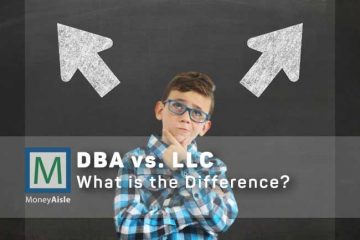A Professional Limited Liability Company, or PLLC, is a unique business structure in the United States. As the name suggests, PLLC is a type of LLC that is designed for licensed professionals such as doctors, nurses, engineers, accountants, lawyers, etc.
In other words, A professional limited liability company (PLLC) is a type of business entity that offers liability protection to its owners (licensed professionals). This means that the members of a PLLC are not personally responsible for the company’s debts and obligations.
PLLCs are typically used by licensed professionals such as lawyers, doctors, accountants, etc., who want to protect their personal assets from being used to satisfy claims against their professional practices.
Although this type of LLC isn’t common in every state, it’s becoming increasingly popular as a way to protect owners from personal liability without the restrictions of a corporation.
To understand what a PLLC is, let’s have a detailed insight into a professional LLC’s features, advantages, disadvantages, and filing requirements.
Want to Start a Professional LLC?
You can follow our DIY guide to forming an LLC to start your professional LLC. However, if forming a PLLC by yourself seems hectic and time taking, hiring a professional and legit LLC Service online like ZenBusiness or Incfile will be the best option. Starting from $0, you will have your LLC created within a week.
What is a Professional Limited Liability Company (PLLC)?
A professional limited liability company (PLLC) is essentially a type of business entity that protects business owners with licensed occupation from financial risks or personal liability for actions taken by the company.
Many states do not allow licensed professionals to form a traditional LLC. For example, in California, licensed professionals are not allowed to form LLCs or PLLCs. Rather they form professional corporations (PCs) or registered limited liability partnerships (RLLPs).
While in all other states where professionals from licensed occupations can not form a simple/traditional LLC, they can get limited liability protection by forming Professional LLC.
List of Professionals that can form Professional LLC
Any profession that requires a state or federal license to operate can form a professional LLC in a state that recognizes PLLC. Here is a list of some common licensed professions that can create a PLLC:
- Doctors
- Nurses
- Dentists
- Veterinarians
- Psychologists
- Acupuncturists
- Chiropractors
- Physical Therapists
- Clinical Social Workers
- Optometrists
- Marriage and Family Therapists
- Architects
- Accountants
- Engineers
- Lawyers
Difference Between an LLC and PLLC?
The only difference between a traditional LLC and Professional LLC is that some states require licensed professionals to form PLLCs rather than simple/traditional LLCs.
So in simple words, anyone can start an LLC but only licensed professionals are allowed to form a PLLC. Both PLLCs and traditional LLCs offer the same liability protection to their members. However, the formation requirements of PLLCs are stricter and are governed more closely.
Creating a PLLC involves taking all the necessary steps to register with the correct licensing agency in order to receive official recognition as an organization with registered owners.
Forming a Professional LLC
The formation requirements of a PLLC are different depending on the state and the particular profession. Generally, a PLLC is created when an owner files approved Articles of Organization with the state authority, the Secretary of State office in most cases.
The state licensing board for your profession must approve your articles of organization before you file it with the state authority. Many states require that only professional license holders in the related field can own professional LLC shares.
However, some states also allow for non-professional license holders, but the filing member must be a licensed professional in the related field.
The state then approves the Certificate of Formation/ Articles of organization, which grants the PLLC the authority to conduct business in the related field.
The group of owners will then typically form an Operating Agreement that sets out how they want to govern their LLC and member responsibilities. This document is essential to ensuring everyone is on the same page when it comes to important decisions.
Then you need to get EIN if you have employees or work as multi-member LLC. Essentially all the steps of starting a PLLC are the same as a traditional LLC except articles of organization must be approved by the state licensing board.
Advantages of Professional LLC
1. Limited Liability Protection
The primary benefit of forming a PLLC is that the owners are protected from personal liability for any debts or legal actions taken against the company. This means that if someone sues the business, the only assets at risk are those belonging to the LLC itself.
The members’ personal property and finances can’t be touched in the event of a lawsuit. This protection is not available if the licensed professionals work as a sole proprietorship or general partnership.
2. Tax Flexibility
PLLC gives more flexibility in the way taxes are handled compared to other types of business entities such as unincorporated businesses, S-Corps, or C-Corps. PLLC can choose to be taxed as an S corp, a disregarded entity, or a C corp.
3. More Credibility
Since the forming members of PLLC are licensed professionals and PLLC undergoes stricter regulation, it has more credibility than a simple LLC. Clients trust PLLCs more than traditional LLCs whose members’ credentials are not known.
Disadvantages of Professional LLC
1. License Requirements
In most states, all members of a PLLC must be licensed professionals. So, people without having the related license cant form PLLC.
2. Stricter Regulations
PLLCs must establish the qualifications for management, adhere to professional regulations, and ensure ongoing compliance in order to protect their client’s interests. The traditional LLC doesn’t have such requirements to meet.
3. Difficult to Get Investors or Finances
It is much more difficult to raise capital or secure financing compared to other business entities. In many states, only licensed professionals can have an LLC membership. Additionally, some states have more restrictive rules for PLLCs than they do for LLCs in general.
For example, some require additional fees or paperwork to form a Professional LLC and certain professions may be completely ineligible in certain states. Therefore, raising finance or getting investors is difficult compared to traditional LLCs.
Important:
If you are looking for ways to finance your LLC, read our guides on the best LLC business loans and how to get a business loan as LLC.
In conclusion
Professional LLCs can be a better choice than a sole proprietorship or general partnership for professions that tend to be more legally risky. PLLC can be a great way to protect yourself from personal liability without sacrificing the autonomy of owning your own business.
Just keep in mind that there are certain restrictions and drawbacks, so make sure you do your due diligence before deciding to form one. We hope this article has helped you make an informed decision and get the most out of a Professional LLC.
Frequently Asked Questions (FAQs)
How is a PLLC different from other types of business entities, such as a sole proprietorship or a corporation?
A PLLC is different from a sole proprietorship in that it offers limited liability protection to its owners, who are not personally responsible for the company’s debts and obligations. In contrast, the personal property of a sole proprietorship owner is at stake if the business has any obligations, debts, and liabilities.
A PLLC is also different from a corporation as it does not have to undergo corporate formalities such as setting up regular shareholders’ meetings, recording meeting minutes, etc. Moreover, a PLLC has more tax flexibility than a corporation.
What are the requirements for forming a PLLC?
The requirements for forming a PLLC vary by state. In general, however, the following steps are typically involved in forming a PLLC:
- Choose a name for the PLLC that complies with the naming requirements of the state where the company will be formed.
- File articles of organization with the appropriate state agency, such as the Secretary of State or the Department of Corporations. The articles of organization typically need to include the name of the PLLC, the names and addresses of the members, and the name and address of the PLLC’s registered agent.
- Obtain any necessary licenses and permits to conduct business in the state where the PLLC will be located. You may need to get your articles of organization approved by your licensing agency.
- Create an operating agreement that outlines the rights and responsibilities of the members and sets forth the rules for managing and governing the PLLC.
- Pay any required fees to form the PLLC and register it with the state.
How to start a PLLC as a nurse practitioner?
Starting an LLC or PLLC as a nurse practitioner is simple. You can start it by following our five steps DIY guide or you can hire ZenBusiness to do all the tasks for you.
What to do to start a PLLC for an Architectural Firm?
There’s no question that starting an architectural firm is a hot commodity. However, there are liability risks if you operate as a sole proprietorship or general partnership. If you have an architectural firm, starting a PLLC for an architectural firm is the right move for your business. All you need to do is to follow our five-step guide to form an LLC or find the best LLC services to let the professional do the job.
Can you start a PLLC for YouTube channels or vlogs?
No, you can not start a PLLC for YouTube channels or vlogs as these are not licensed professions. Only licensed professionals such as engineers, doctors, accountants, attorneys, etc. can start a PLLC.
To limit the liabilities of your YouTube channel or vlogs, you can form an LLC for your YouTube channel rather than operating as a sole proprietorship.
Can a PLLC have more than one member?
Yes, a PLLC can have more than one member. In fact, many PLLCs are owned by multiple individuals who work together to provide professional services. However, in some states, all the PLLC members must be licensed professionals in the relevant field.
It is important to note that the operating agreement for a PLLC with multiple members should outline the rights and responsibilities of each member, as well as the rules for managing and governing the company. This can help to avoid conflicts and ensure that the PLLC is run smoothly and efficiently.
How is a PLLC taxed?
A PLLC is generally taxed in the same way as a partnership. This means that the income and losses of the PLLC are passed through to the individual members, who report their share of the PLLC’s income or loss on their personal tax returns. The PLLC itself does not pay taxes on its income. However, PLLC has the flexibility to choose its tax structure and may also elect to be taxed as an S Corp or C corporation.
Can a PLLC engage in any business activities, or are there restrictions on the types of activities it can undertake?
A PLLC is a business entity that is typically used by professionals who provide personal services, such as nurses, lawyers, doctors, and accountants. As such, the activities that a PLLC can engage in are typically limited to the provision of professional services by its members.
For example, a PLLC owned by lawyers may be able to provide legal services, while a PLLC owned by doctors may be able to provide medical services.
Can a PLLC be converted into another type of business entity?
Yes, a PLLC can be converted into another type of business entity, such as a corporation or a limited liability company (LLC). This process is called a “conversion” and it involves filing the appropriate documents with the state where the PLLC is located.
The specific steps involved in converting a PLLC will vary depending on the state where the PLLC is located and the type of business entity it is being converted into. It is recommended to consult with a lawyer or other professional to ensure that the conversion is done properly and in compliance with state law.
What are the responsibilities of the members of a PLLC?
The responsibilities of the members of a PLLC will depend on the specific terms of the company’s operating agreement and the laws of the state where the PLLC is located. In general, however, the members of a PLLC may have responsibilities such as providing professional services, managing the PLLC, complying with state laws, protecting the PLLC’s assets, etc.
Can a PLLC be dissolved?
Yes, a PLLC can be dissolved and stop providing professional services. This process, also known as “winding up” or “terminating” the PLLC, involves taking steps to bring the company’s operations to an end and disbanding the company.
The specific steps involved in dissolving a PLLC will depend on the laws of the state where the PLLC is located and the provisions of the company’s operating agreement. You can learn more about how to dissolve an LLC here.

Aisha Noreen is an owner of a small business with more than 9 years of experience in the marketing industry. With the wisdom of an old soul, she always seeks innovation and mind-blowing ROI techniques. Her unique approach helped many small businesses thrive and she can surprise you in many ways as well. Believe it or not, her energy, passion, and creativity are contagious enough to transform your business and take it to another level.





